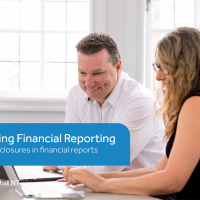We are pleased to bring you the our top tax tips highlighting the latest tax developments that have occurred.
Holiday homes – know when you can claim a tax deduction
If you own and rent a holiday home, you can claim tax deductions against rental income for expenses such as interest on loans, borrowing expenses, depreciation and capital works spending for the time the holiday home is actually rented out or genuinely available for rent.
For the period the holiday home is not rented out or not genuinely available for rent, you will not be allowed to claim a deduction (i.e. there will have to be an apportionment of expenses if the holiday home was used for such a dual purpose). Also, if your holiday home is rented out to family or friends at a rate lower than market value, your deductions will be limited to the actual (lower) amount of rent received in that period.
When the holiday house is sold, capital gains tax will be payable if the sale proceeds exceed the costs associated with the property’s acquisition and sale, plus any improvement costs not previously claimed as a tax deduction.
Backpacker tax now proposed to be 19% – working holiday and not a tax holiday
From 1 January 2017, the Government proposes to tax working holiday visa holders / backpackers (i.e. Subclass 147 and 462 visas) at a flat rate of 19% on earnings up to $37,000 with ordinary marginal rates of tax applying after that.
This means backpackers will no longer be able to qualify as tax residents of Australia – regardless of the time spent in Australia. Consequently they would no longer be able to access the $18,200 tax-free threshold (i.e. they will be taxable on the first dollar of income earned).
Businesses intending to employ backpackers must register with the ATO (to ensure a 19% withholding rate) – failing to register may result in penalties payable.
Small Businesses – Are you SuperStream ready?
The ATO has questioned whether large businesses (i.e. those with 20 or more employees who have been using SuperStream since 31 October 2015) are using SuperStream correctly – particularly if they still use cheques, EFT or BPay to make direct payments (i.e. without using a SuperStream payment standard).
We note that small businesses (i.e. those with less than 20 employees) must adopt SuperStream from 28 October 2016.
Please contact us if you have any problems with your SuperStream obligations (for large businesses) or if you need help updating your systems to ensure you are SuperStream ready by 28 October 2016 (for small businesses).
Restructure your limited recourse borrowing arrangements
If your SMSF has any related party non-commercial limited recourse borrowing arrangements (LRBA), you have until 31 January 2017 to ensure those borrowing arrangements are on arm’s length terms such as market interest rates, commercial lending periods and principal and interest repayment arrangements.
We can assist you in restructuring your borrowing arrangements to minimise the risk that such income generated from the LRBA will be taxed at 47% as non-arm’s length income (NALI).
Ancillary funds registered as charities – only needs to report to the ACNC
Ancillary funds registered as charities now only need to report their 2016 annual return to the Australian Charities and Not-for-profits Commission (ACNC) by 28 February 2017.
Ancillary funds not registered as charities must continue reporting to both the ATO and ACNC.
How can Nexia Edwards Marshall NT help you?
For any questions or to discuss any of the above in relation to your personal situation, please contact Sarah McEachern or your Nexia Edwards Marshall NT Advisor.


